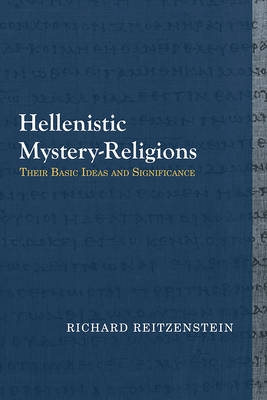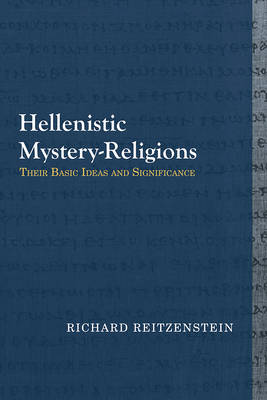
- Retrait gratuit dans votre magasin Club
- 7.000.000 titres dans notre catalogue
- Payer en toute sécurité
- Toujours un magasin près de chez vous
- Retrait gratuit dans votre magasin Club
- 7.000.0000 titres dans notre catalogue
- Payer en toute sécurité
- Toujours un magasin près de chez vous
Description
At the turn of the twentieth century, a group of famed scholars at the University of Göttingen founded a movement that came to be known as the "History of Religions School." In their approach to Christian origins and early Christian belief about Jesus they emphasized the degree to which Christianity was a product of its time. Christians borrowed and adapted ideas already in wide circulation to craft their claims about Christ.
In his now classic Hellenistic Mystery-Religions (first published in 1910), Richard Reitzenstein seeks to establish the direct dependence of early Christianity on Hellenistic, Mandaean, and Iranian mythology and ritual. While written before the discoveries of Qumran and Nag Hammadi, Reitzenstein's knowledge of ancient texts still warrants careful reading. Even if one rejects his claim that the Apostle Paul was "the greatest of all Gnostics," Reitzenstein's rigorous attempt to root Christianity in its historical context and demonstrate the genetic development of religious belief and practice merits both commendation and careful attention.
Spécifications
Parties prenantes
- Auteur(s) :
- Editeur:
Contenu
- Nombre de pages :
- 588
- Langue:
- Anglais
- Collection :
Caractéristiques
- EAN:
- 9781481309561
- Date de parution :
- 15-07-18
- Format:
- Livre broché
- Format numérique:
- Trade paperback (VS)
- Dimensions :
- 152 mm x 229 mm
- Poids :
- 852 g

Les avis
Nous publions uniquement les avis qui respectent les conditions requises. Consultez nos conditions pour les avis.






